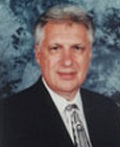By Robert E. Henson
Psalms 1
1 Blessed is the man that walketh not in the counsel of the ungodly, nor standeth in the way of sinners, nor sitteth in the seat of the scornful.
2 But his delight is in the law of the LORD; and in his law Both he meditate day and night.
3 And he shall be like a tree planted by the rivers of water, that bringeth forth his fruit in his season; his leaf also shall not wither; and whatsoever he doeth shall prosper.
4 The ungodly are not so: but are like the chaff which the wind driveth away.
5 Therefore the ungodly shall not stand in the judgment, nor sinners in the congregation of the righteous.
6 For the LORD knoweth the way of the righteous: but the way of the ungodly shall perish.
In this chapter we will focus on verse 3 of the above passage. We will examine the four characteristics and/or evidences of the truly blessed person stated in that scripture.
It is important to closely observe that every blessing pronounced in verse 3 is based upon the three facts noted in verse 1 and the two principles listed in verse 2; namely,
• The person does not follow ungodly counsel (not revering God, impious, sinful, wicked, or outrageous advice)
• The man or woman does not “run with” or “hang out with” the worldly and sinful crowd
• The person is not scornful (to consider or treat as contemptible, unworthy, despicable, or inferior; to deride; to have a negative attitude)
• The individual’s delight (great pleasure or gratification; joy) is in the law or Word of God [One translation renders “delight” as what gets him excited]
• The person meditates (to reflect upon or contemplate; ponder) frequently and consistently in the Word of God
The obvious conclusion to these truths is that a long-term forecast of blessing in any person’s life is irrevocably linked to his or her relationship with God’s Word and their adherence and obedience to it.
Now let us consider the pronounced blessings of verse 3.
He Shall Be Like a Tree Planted by the Rivers of Water
A key word here is planted. The example used here to illustrate the blessed life is a tree. A tree can only be blessed when it is lamed; if uprooted, a tree will die and then rot.
Spiritually, for a person to receive ongoing and continual blessings, he or she must be planted. Enduring blessings depend upon having a good root system. Spiritual “tumbleweeds” or drifters usually never contribute very much to God’s Kingdom, and they don’t normally fare very well themselves.
Notice also that the planting mentioned, as a facilitator of the blessing, is in a prime location – by the rivers of water. Rivers is plural. The blessed person is not just planted by a river; such
a one is planted in proximity to where two or more rivers pass along or merge together. The idea is that such a person is sustained by multiple sources of supply that just keep on flowing. God does not leave us dependent on just one source for our sustenance and blessings.
Wow! God surely does take extremely good care of His World Changers.
That Bringeth Forth His Fruit in His Season
Observe the words his fruit. It can be appropriately deduced from this terminology that the fruit is individualized and of a certain type. It is certainly not a reference to all the known types of fruit coming from one tree.
It is rare, or more likely non-existent, that one person excels at everything. We are each gifted in certain areas; whereas, in other areas we have little or no talent and no expertise. We need to avoid as much as is feasible comparing our “fruit” with the “fruit” of others.
God made each of us unique; consequently, our “fruit” is unique. Many of God’s people bring much condemnation, and even depression, upon themselves because they make unhealthy comparisons between their own “fruit” and that of others. Neither you nor I are good at everything. We may not all be able to do the same things for God, especially with the same level of competency, but we can all do something!
Read carefully the expression in his season. This is a defining phrase. Notice that it does not say “for a lifetime.” While it is honorable to seek to contribute throughout one’s life, the fact remains that there are certain seasons for certain fruit.
Some of our “fruit” or contributions to God’s Kingdom are purposefully designed by God to be yielded at a particular time or season. Consider the following verses of scripture.
Esther 4:13-14
13 Then Mordecai commanded to answer Esther, Think not with thyself that thou shalt escape in the king’s house, more than all the Jews.
14 For if thou altogether holdest thy peace at this time, then shall there enlargement and deliverance arise to the Jews from another place; but thou and thy father’s house shall be destroyed: and who knoweth whether thou art come to the kingdom for such a time as this? [Emphasis added]
1 Peter 5:6
Humble yourselves therefore under the mighty hand of God, that he may exalt you in due time: [Emphasis added]
This phrase, in his season, should also serve to motivate us as it underlies the truth that we will not always have opportunity to contribute to the Kingdom of God. Each of us needs to purpose in our hearts to do what we can for God and others when we can and while we can.
What season is it for you currently?
His Leaf Also Shall Not Wither
Here the subject is the leaf, not the fruit. The leaf is an integral part of the beauty of a tree. The leaf also fulfils a vital role for the tree and for the rest of nature through the process of photosynthesis.
Wither means to dry up or shrivel; to lose freshness or droop; to fade. Instead of withering, the life of such a blessed person continues to teem with freshness and can add much to the community around them. The beauty of godly character never fades.
In other words, what God blesses is truly blessed!
And Whatsoever He Doeth Shall Prosper
Prosper, as used here, means to be successful or thrive. Notice the word whatsoever. It is a generous term and without limitation. The idea is that when a person is blessed, everything they undertake or engage in is successful or thrives. Wow!
Such a one is blessed when they go out, and they are blessed when they come in. This is such a wide-open and potential-laden promise, that it is difficult for us to comprehend its magnitude or to fully believe its expansiveness.
World Changers are energized to excel in personal development, so that they may be the servants of God, and the best person that they can possibly be.
I conclude this chapter with the following essay by an unknown author.
The Four Seasons of a Tree
Don’t judge a life by one difficult season.
There was a man who had four sons. He wanted his sons to learn not to judge things too quickly. So he sent them each on a quest, in turn, to go and look at a pear tree that was a great stance away.
The first son went in the winter, the second in the spring, the third in the summer, and the youngest in the fall. When they had gone and come back, he called them together to describe what they had seen.
The first son said the tree was ugly, bent, and twisted. The second son said no – it was covered with green buds and full of promise.
The third son disagreed. He said it was laden with blossoms that smelled so sweet and looked so beautiful. It was the most graceful thing he had ever seen.
The last son disagreed with all of them. He said it was ripe and roping with fruit, full of life and fulfillment.
The man then explained to his sons that they were all right because they had each seen but one season in the tree’s life.
He told them that you couldn’t judge a tree, or a person, by only one season and that the essence of who we are – the pleasure, joy, and love that come from that life – can only be measured at end, when all the seasons are added up.
If you give up when it’s winter, you will miss the promise of your spring, the beauty of your summer, and the fulfillment of your fall.
Don’t let the pain of one season destroy the joy of all the rest.
World Changers overcome pain.
Excerpted from ‘World Changers’ by Robert E. Henson.



